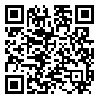Volume 6, Issue 2 (December 2020)
Elderly Health Journal 2020, 6(2): 131-139 |
Back to browse issues page
Download citation:
BibTeX | RIS | EndNote | Medlars | ProCite | Reference Manager | RefWorks
Send citation to:



BibTeX | RIS | EndNote | Medlars | ProCite | Reference Manager | RefWorks
Send citation to:
Ekici E, Sevgi K, Ezgi Ü, Melike B. Care Dependency and Diabetes Self-Care Activities in Elderly Individuals with Diabetes. Elderly Health Journal 2020; 6 (2) :131-139
URL: http://ehj.ssu.ac.ir/article-1-201-en.html
URL: http://ehj.ssu.ac.ir/article-1-201-en.html
Department of Nursing, Faculty of Health Sciences, Uskudar University İstanbul, İstanbul,Turkey , emine.ekici@uskudar.edu.tr
Abstract: (2514 Views)
Introduction: Changing lifestyle, physical inactivity, and obesity lead to increased diabetes prevalence in the elderly. Diabetes management involves self-care activities, such as medical nutrition therapy, physical activity, use of pharmacologic agent, self-monitoring of blood glucose, foot care, and smoking cessation. Physiological, biological, mental changes that show up with aging and the physiological profile of the elderly individuals can increase care dependency. This study aimed to evaluate the level of care dependency in elderly individuals with diabetes and their diabetes self-care activities and to determine the adaptable factors related to care.
Methods: This descriptive study sampled 136 elderly individuals aged over 65 who presented to the outpatient diabetes center of a hospital in Turkey during 2019. The data were collected using an "Introductory Information Form", the "Diabetes Self-Care Activities Questionnaire", and the "Nursing Care Dependency Scale". The data were analyzed on SPSS software package using descriptive statistics, the Spearman correlation test, student T-test, and one way ANOVA.
Results: The mean age of the participants was 71.9 ± 5.652. Regarding the self-care activities of the participants, the lowest mean score was in the exercise domain (2.15 ± 2.01), and the highest mean score was in the foot care domain (6.03 ± 2.02). The mean care dependency score of the participants was 84.6 ± 1.26, which meant slight dependency. As for the mean care dependency score of the participants, the lowest mean score belonged to memory (4.91 ± 0.43) and mobility (4.91 ± 0.28) domains. The mean care dependency score of the participants who did not receive diabetes training (84.86 ± 0.59) was higher than those who did (84.22 ± 1.90) (p < 0.05). The increase in the care dependency scores of the participants also increased their general diet, special diet and foot care scores.
Conclusion: Assessment of diabetes self-care activities together with care dependence in elderly people can be used to plan personalized diabetes management.
Methods: This descriptive study sampled 136 elderly individuals aged over 65 who presented to the outpatient diabetes center of a hospital in Turkey during 2019. The data were collected using an "Introductory Information Form", the "Diabetes Self-Care Activities Questionnaire", and the "Nursing Care Dependency Scale". The data were analyzed on SPSS software package using descriptive statistics, the Spearman correlation test, student T-test, and one way ANOVA.
Results: The mean age of the participants was 71.9 ± 5.652. Regarding the self-care activities of the participants, the lowest mean score was in the exercise domain (2.15 ± 2.01), and the highest mean score was in the foot care domain (6.03 ± 2.02). The mean care dependency score of the participants was 84.6 ± 1.26, which meant slight dependency. As for the mean care dependency score of the participants, the lowest mean score belonged to memory (4.91 ± 0.43) and mobility (4.91 ± 0.28) domains. The mean care dependency score of the participants who did not receive diabetes training (84.86 ± 0.59) was higher than those who did (84.22 ± 1.90) (p < 0.05). The increase in the care dependency scores of the participants also increased their general diet, special diet and foot care scores.
Conclusion: Assessment of diabetes self-care activities together with care dependence in elderly people can be used to plan personalized diabetes management.
Type of Study: Research |
Subject:
Special
Received: 2020/08/28 | Accepted: 2020/12/19 | Published: 2020/12/28
Received: 2020/08/28 | Accepted: 2020/12/19 | Published: 2020/12/28
Send email to the article author
| Rights and permissions | |
 |
This work is licensed under a Creative Commons Attribution-NonCommercial 4.0 International License. |








